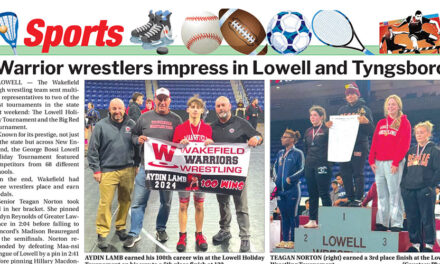EVERETT – The town’s schools will be getting a little help in the areas of digital literacy and computer science education, the state announced yesterday.
Following the Healey-Driscoll Administration’s STEM Summit focused on computer science education and careers, the administration announced today that it is awarding $265,025 in grants to nine school districts to establish and promote rigorous, engaging and standards-aligned digital literacy and computer science education. These funds are designed to support implementation that began last year for either grades 3-5 or grades 6-8. The grant will help districts expand digital literacy and computer science education into an adjacent grade span, with a focus on ensuring that all students in that grade are receiving computer science education.
Wakefield was awarded $14,581.
“Digital literacy and computer science skills are important for all students, and grants like this help increase access and participation,” said Governor Maura Healey. “I look forward to seeing the opportunities that these districts will create for their students.”
“Computer science and digital literacy are embedded in a wide range of jobs in the Massachusetts economy, and all students should learn about the many ways those areas are part of our everyday lives,” said Lt. Governor Kim Driscoll. “I’m glad to see teachers, schools and districts using these grants to expand access.”
“When students experience engaging, relevant lessons in digital literacy and computer science in elementary and middle school, they may be more likely to continue studying those areas in high school and beyond,” said Education Secretary Patrick Tutwiler. “Through efforts like our STEM Summit and this grant, we are inspiring students, particularly those who were historically excluded, to see themselves in these fields.”
As part of this three-year grant, district teams will meet and develop a DLCS Implementation Plan, select high-quality instructional materials, and select teachers to attend summer professional development that will prepare them to teach computer science in the following school year. Districts will also participate in workshops that will focus on strategies to increase participation rates for traditionally underserved students.
“We want all students to have learning experiences that are relevant, real-world and interactive, and digital literacy and computer science offer a variety of possibilities,” said Russell D. Johnston, acting commissioner of elementary and secondary education. “I’m glad to see districts expanding their work in this area and including all students.”




